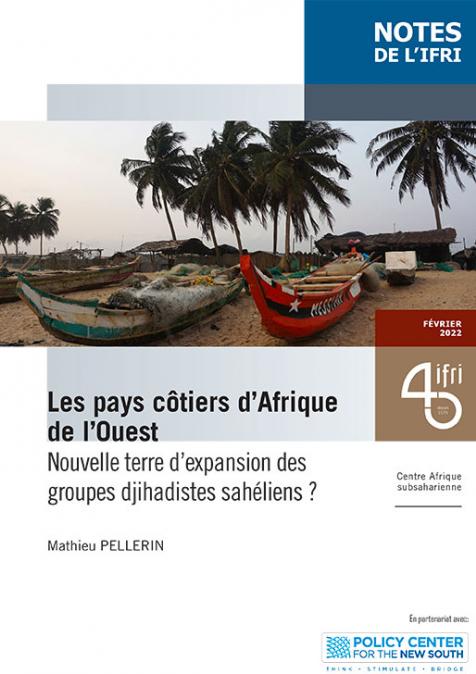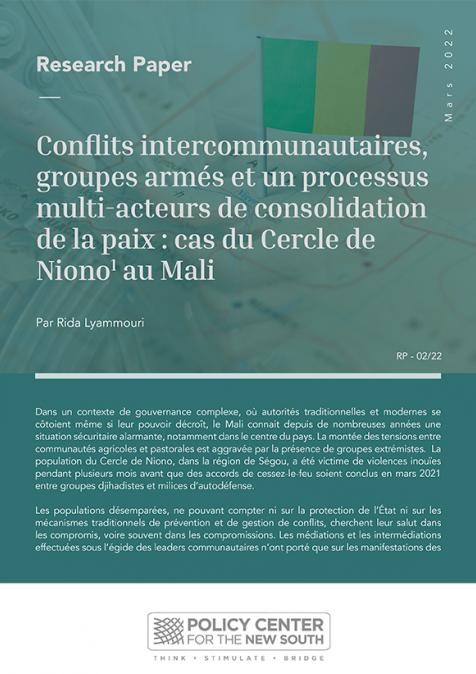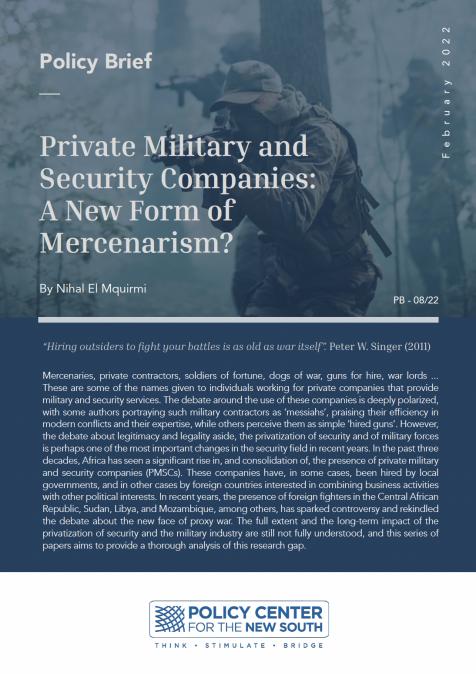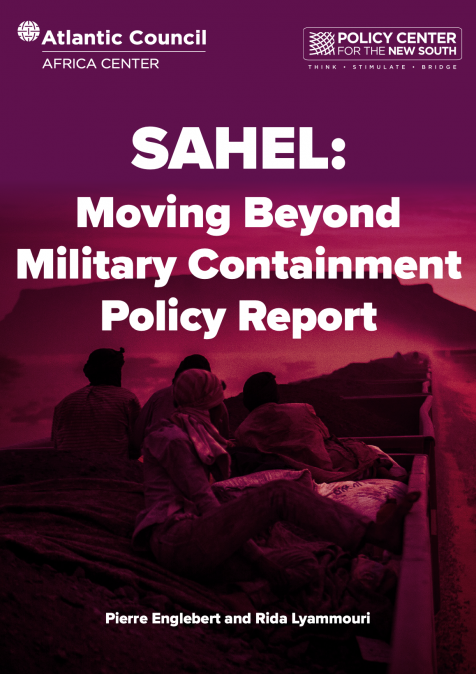Paul-Simon Handy, Regional Director for East Africa and Representative to the African Union, delves into the complexities of mediation in internal African conflicts. Despite half of the UN peacekeeping forces being deployed on the African continent, sustainable peace remains elusive. Mr Handy explores the reasons behind these challenges, shedding light on the intricate dynamics and obstacles that hinder effective conflict resolution.
RELATED CONTENT
-
AuthorsMathieu PellerinMarch 2, 2022La situation sécuritaire dans le Sahel central est à ce point dégradée que la menace djihadiste déborde désormais sur la partie nord des pays côtiers d’Afrique de l’Ouest. Les régions de l’Est et des Cascades au Burkina Faso ou celles de Sikasso et de Kayes au Mali constituent des bases arrière permettant aux groupes djihadistes – et principalement à la Jama’at Nasr al-Islam wal Muslimin (JNIM) pour l’instant – de s’étendre au Bénin, en Côte d’Ivoire, et dans une moindre mesure au T ...
-
AuthorsMarch 1, 2022Dans un contexte de gouvernance complexe, où autorités traditionnelles et modernes se côtoient même si leur pouvoir décroît, le Mali connait depuis de nombreuses années une situation sécuritaire alarmante, notamment dans le centre du pays. La montée des tensions entre communautés agricoles et pastorales est aggravée par la présence de groupes extrémistes. La population du Cercle de Niono, dans la région de Ségou, a été victime de violences inouïes pendant plusieurs mois avant que de ...
-
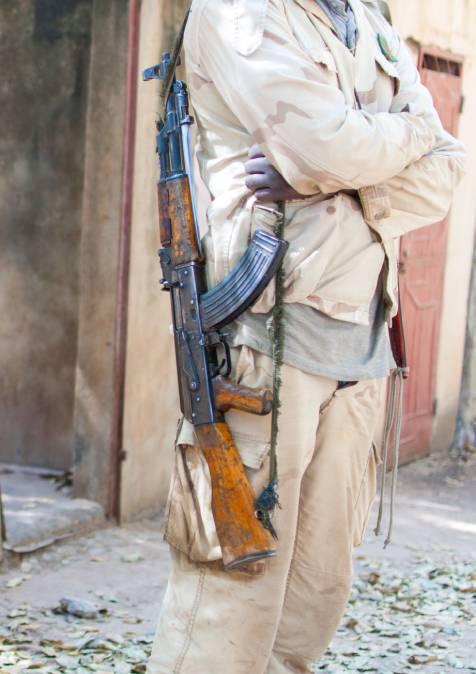 AuthorsFebruary 28, 2022This article was initially published on usip.org The presence of CBAGs raises issues that force a rethink of local implementation of peacebuilding processes. The RESOLVE Network’s multiyear research on Community-Based Armed Groups (CBAGs) has established critical findings for the international community on how to engage, manage and transform violent actors in conflict-affected states. While mitigation efforts tend to target anti-state extremist org ...
AuthorsFebruary 28, 2022This article was initially published on usip.org The presence of CBAGs raises issues that force a rethink of local implementation of peacebuilding processes. The RESOLVE Network’s multiyear research on Community-Based Armed Groups (CBAGs) has established critical findings for the international community on how to engage, manage and transform violent actors in conflict-affected states. While mitigation efforts tend to target anti-state extremist org ... -
Rim Riouch & Abdelhak BassouFebruary 17, 2022Les coups d’état se sont enchainés dans l’actualité africaine, avec quatre pays suspendus par l’Union africaine en une année civile, la sécurité au Sahel avance à reculons. L’invité de ce ...
-
AuthorsFebruary 14, 2022“Hiring outsiders to fight your battles is as old as war itself”. Peter W. Singer (2011) Mercenaries, private contractors, soldiers of fortune, dogs of war, guns for hire, war lords ... These are some of the names given to individuals working for private companies that provide military and security services. The debate around the use of these companies is deeply polarized, with some authors portraying such military contractors as ‘messiahs’, praising their efficiency in modern conf ...
-
AuthorsPierre EnglebertFebruary 11, 2022Almost ten years after the beginning of the security crisis in the Sahel, Burkina Faso, Mali, and Niger face a graver predicament than ever before. In the throes of multiple insurgencies, they and their foreign patrons, including France, have shown the limits of military containment. While these three countries are the victims of terrorist aggression, their crises also have deep domestic roots, including long-standing patterns of state abuses of their populations, even in the more d ...
-
Rim Riouch & Rida LyammouriFebruary 11, 2022Violence is increasingly endangering the lives of populations throughout the Sahel. Amid this problematic situation, coup d’etats are multiplying. On January 23, a military coup d’etat wa ...
-
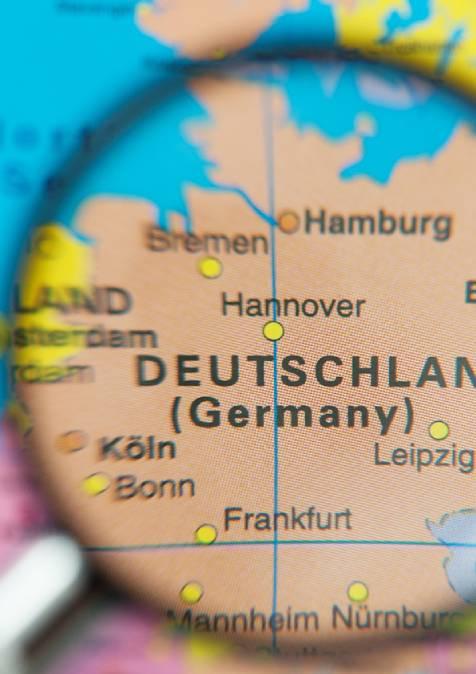 AuthorsJanuary 31, 2022It has been more than 100 years since Germany manifested colonial power, a dark period of history indeed. Political and military leaders, supported by its ruler, Wilhelm II, Emperor of Germany and King of Prussia, committed crimes against humanity on African land. The first genocide of the 20th Century, mass killings of 65 000 Herero in Africa, today known as Namibia. Between 1904 and 1908, Germany suffocated humanity in concentration camps like Shark Island, forcing them ...
AuthorsJanuary 31, 2022It has been more than 100 years since Germany manifested colonial power, a dark period of history indeed. Political and military leaders, supported by its ruler, Wilhelm II, Emperor of Germany and King of Prussia, committed crimes against humanity on African land. The first genocide of the 20th Century, mass killings of 65 000 Herero in Africa, today known as Namibia. Between 1904 and 1908, Germany suffocated humanity in concentration camps like Shark Island, forcing them ... -
Amal El Ouassif, Seleman Kitenge and Oussama TayebiDecember 10, 2021The Cabo insurgency constitutes one of the most significant threats to peace and security in Southern Africa subregion. This podcast explores the various challenges the insurgency in this ...
-
December 9, 2021A summit on the African vision of Sahel’s future with a focus on development around the 5 Sahelian Ministers of Economy and the report “Sahel: Moving Beyond Military Containment” ...

